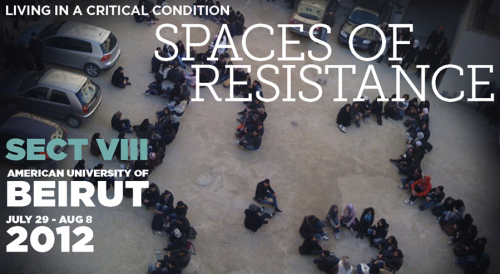Emerging Projects in Technology and Society

How has digital technology shaped the way we understand education, politics, and social change? How must scholars and practitioners adapt to this new world?
These questions are at the heart of a number of upcoming conferences, projects, and initiatives that explore the social impact of digital technology, new media, and the Internet.
One is the “Beyond Educational Technology: Learning Innovations in a Connected World” conference, which will take place March 1-3 in San Francisco. The conference will feature hundreds of prominent scholars, teachers, and technologists gathering together to “address rapidly-escalating concerns about the urgent need to reimagine education, learning, and school for the present generation and beyond.”
This is the third annual conference produced by the Digital Media and Learning Research Hub, which is part of the University of California system's Humanities Research Institute (UCHRI) and located physically at UC Irvine. The Research Hub is dedicated to analyzing and interpreting the impact of the internet and digital media on education, politics, and youth, and organizes the annual gathering to explore what next-generation learning looks like in a world being remade by innovation, technology, and social networks. Funded by the MacArthur Foundation (with contributions by the Gates Foundation, Mozilla Foundation and Microsoft Research).
The conference will include scores of talks, case studies, and panel discussions spotlighting examples of next-generation learning and innovation - from deigning and using videogames to explore critical social issues to Youtube as a international peer-to-peer learning platform.
The conference will also include a special briefing during which researchers outline a fresh approach to education called “Connected Learning” – a new model especially geared to digital society. The first day will also feature a Science Fair produced by the Mozilla Foundation spotlighting exciting new learning-related projects, including: Hive Learning Networks, open, connected communities in New York and Chicago dedicated to transforming the learning landscape for youth; Mozilla Popcorn, a classroom tool for youth to produce video book reports, interactive essays, and digital-age storytelling; Peer 2 Peer University, a grassroots open education project that organizes learning outside of institutional walls; and Mozilla Open Badges, an effort to create a new way of recognizing skills and achievements for 21st century learners.
Other upcoming projects are exploring the intersection of technology and politics or social change. For instance, the Seminar in Experimental Critical Theory – also an initiative of UCHRI – is hosting their annual conference entitled “Living in a Critical Condition: Spaces of Resistance” at the American University of Beirut July 29-August 8. The 8th such seminar, “Spaces of Resistance” will investigate various strategies of non-violent popular uprisings – with emphasis on the revolutions currently sweeping the Arab World – including the construction of virtual spaces for social change.
Finally, Hivos and the Center for Internet and society have published the results from their three-year knowledge inquiry into the field of youth, technology and change in a four book collective called “Digital AlterNatives with a cause?”. The volumes explore critical questions about theory and practice surrounding “digital revolutions” in the Middle East North Africa region, and examines the nature and practice of digital natives in emerging contexts from the Global South. All four volumes are available free online.
This is an exciting time for students and practitioners interested in the relationship between technology and society. Projects such as these are at the forefront of this emerging field, and will shape the future of this inchoate field. But scholars and practitioners in Education, Sociology, and Literary Studies should take notice as well; it is only a matter of time before the insights generated in these projects will diffuse into “traditional” fields as well.